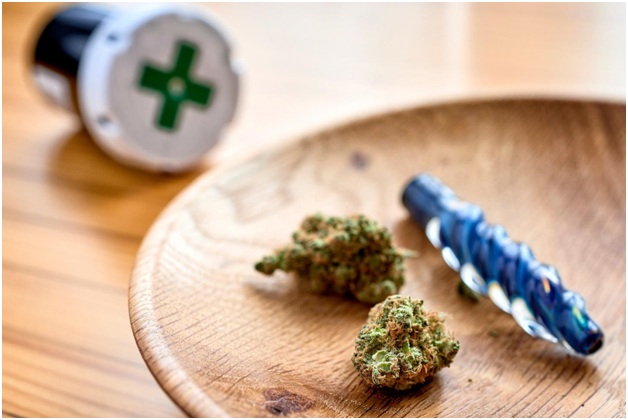You?ve just brought home some smoke or edibles from your favorite marijuana dispensary in Maryland and are ready to catch a buzz, soothe your worried mind, and ease the pain of your everyday life. You may have even had the foresight to buy some snacks because smoking sometimes gives you the munchies. Before you indulge or dose, though, ask yourself one question: How does marijuana cause all of these wonderful effects? Lets find out how does Marijuana Work.?
Marijuana contains hundreds of unique compounds, known as cannabinoids, not found in any other plants. The most notable is tetrahydrocannabinol (THC), which is the active ingredient in marijuana ? in other words, THC is what gets you high. But do you know exactly how THC works?
When you smoke marijuana, your bloodstream absorbs the cannabinoids and carries the compounds throughout your body. Once in your bloodstream, the THC in pot reaches your brain almost immediately, and you begin to feel the effects right away: you may feel calmer and more mellow, your eyes may dilate so colors appear more intense, and you might even feel like having a snack. These effects are the result of the interaction between THC and your brain.
You probably knew all of that already, though, as it doesn?t take a brain surgeon to know that smoking pot gets you stoned by making your brain chill out. Fortunately, brain surgeons and other smart people have done some research into the effects of marijuana, and we?re learning more every day.
Table of Contents
Let?s Talk about Your Brain
Your brain and central nervous system consist of brain cells, nerves, and chemical compounds that work together to pass messages between your brain and the rest of your body. When something happens inside of you or in the outside world, your body sends a message about it to your brain, which then sends messages telling various parts of the body how to react to those events. These messages travel along special nerves, known as neurons. Your brain contains about 86 billion neurons!
Chemical messengers, known as neurotransmitters, carry communications back and forth along neurons between your brain and your body. Neurotransmitters are small molecules that carry specific messages about what the cells of the brain and body should do. When neurotransmitters reach their destination, they dock onto special protein receptors. The act of attaching to a receptor causes a specific action to take place; some neurotransmitters inhibit the action of the receptor while other neurotransmitters excite the receptor.
Your body makes all of the neurotransmitters it needs to function, but you can also introduce neurotransmitters into your body by consuming medicine, marijuana, or other substances that mimic the activity of your body?s natural neurotransmitters.
Marijuana works because the THC in pot mimics a neurotransmitter naturally occurring in your body. This neurotransmitter, known as anandamide, is actually a cannabinoid that your body already makes. Anandamide binds with cannabinoid receptors to cause specific effects. Stimulating these receptors can affect:
- Short-term memory
- Coordination
- Learning
- Problem-solving
Cannabis causes strong effects because there are so many cannabinoid receptors in the body. In fact, the cannabinoid receptors that pot binds to ? also known as CB1 receptors ? are the most abundant type of protein receptors in your body. This means your body is very receptive to the effects of cannabis.
Believe it or not, the effects of cannabinoid neurotransmitter communications are so important to human health that researchers named an entire body system after it ? the endocannabinoid system. This system plays a critical role in the normal functioning of the entire nervous system.
There are CB1 receptors all over the body, and activating receptors in various parts of the body causes specific actions. For example, docking to CB1 receptors in the gut slows down peristalsis, which are the wave-like motions that push food and stool through your intestines. Most of the CB1 receptors are in the brain, however, so the primary action of marijuana is its psychoactive effects.
Marijuana Affects Specific Parts of Your Brain
Your brain is complex, and each area of your brain performs different tasks. Some areas of your brain contain large numbers of CB1 receptors; activating these receptors changes the way that area of the brain functions.
The hippocampus, cerebellum and basal ganglia contain copious amounts of CB1 receptors, for example, and activating these receptors causes predictable effects. Your hippocampus, situated inward from your ear towards the center of your head, is responsible for short-term memory. As THC binds with the receptors in your hippocampus, it slows down your short-term memory and makes it hard to remember recent events and learn new skills.
Your cerebellum and basal ganglia control coordination and unconscious body movements; stimulating the receptors in these two areas of the brain can make you clumsier. Activating CB1 receptors in other parts of the brain can reduce pain, stimulate appetite, and cause other effects. For example, binding to the CB1 receptors in the vagus nerve increases the production of ghrelin, which is the hormone responsible for the sensation of hunger-stimulating the receptors here is what gives you the munchies.
Now that you know exactly how marijuana affects your system, you can imbibe with a fuller understanding of the effects and benefits of taking a toke or a dose.
?
?
